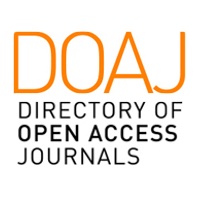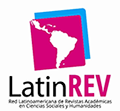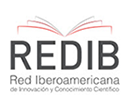Uma agenda de pesquisa para a formação docente
Palavras-chave:
Estados Unidos, Formação Docente, PesquisasResumo
Este artigo examina os textos que fizeram parte do relatório final do painel da American Educational Research Association(AERA) sobre formação docente e que analisaram a investigação acadêmica de temas específicos referentes à formação inicial de professores nos Estados Unidos e sugere uma agenda de pesquisa para a área a fim de superar algumas das principais limitações na pesquisa existentes e ampliar linhas de trabalho promissoras. Também discute as condições necessárias para apoiar a implementação dessa agenda de pesquisa. Ele começa examinando a missão desse painel e a direção geral de suas recomendações. Depois de analisar algumas limitações nesse trabalho, oferece uma agenda de pesquisa por meio da qual os membros do painel acreditam abranger planos de pesquisa, metodologias e tópicos que são promissores para aumentar a qualidade da pesquisa na área.
Downloads
Referências
Borko, H., e Putnam, R. (1996). Learning to teach. In R.C. Calfee e D. Berliner (Eds.), Handbook of educational psychology (pp.673-708). New York: Macmillan.
Boyd, D., Grossman, P., Lankford, H., Loeb, S., e Wyckoff, J. (2003, July). Examining teacher preparation: Does the pathway make a difference? Retrieved April 28, 2004 from http://www.teacherpolicyresearch.org
Breidenstein, A. (2002). Examining the outcomes of four-year and extended teacher education programs. Teacher Education Programs and Practice, 15(3), 12-43.
California State University. (2001). First systemwide evaluation of teacher education programs. Sacramento: Office of the Chancellor, California State University.
Carnegie Corporation. (2004). Teachers for a new era: Prospectus. Retrieved from http://carnegie.org/sub/program/teachers_prospectus.html
Cochran-Smith, M. (1994). The power of teacher research in teacher education. In S. Hollingsworth e H. Sockett (Eds.), Teacher research and educational reform (pp.142-165). Chicago: University of Chicago Press.
Cochran-Smith, M., e Fries, K. (2001). Sticks, stones, and ideology: The discourse of reform in teacher education. Educational Researcher 30(8), 3-15.
Cochran-Smith, M., e Lytle, S. (1993). Inside outside: Teacher research and knowledge. New York: Teachers College Press.
Darling-Hammond L. (Ed.). (2000). Studies of excellence in teacher education. (3 volumes). Washington, DC: American Association of Colleges for Teacher Education.
Darling-Hammond, L., e Bransford, S. (2005). Preparing teachers for a changing world. San Francisco: Jossey-Bass.
Decker, P., Mayer, D., e Glazerman, S. (2004, June). The effects of teach for America on students: Findings from a national evaluation. Princeton, NJ: Mathematica Policy Research, Inc.
Donavan, M.S., Wigdor, A. K., e Snow, C. E. (Eds.). (2001). Strategic education research partnership. Washington, DC: The National Academies Press.
Florio-Ruane, S. (2002). More light: An argument for complexity in studies of teaching and teacher education. Journal of Teacher Education, 53(2), 205-215.
Gawande, A. (2002). Complications: A surgeon’s notes on an imperfect science. New York: Picador.
Goodlad, J. (1984). A place called school: Prospects for the future. New York: Rand McNally.
Grossman, P. (April, 2004). The research we want, the research we need: A teacher educator’s perspective. Division K Vice Presidential address, San Diego.
Grossman, P., Valencia, S., Evans, K., Thompson, C., Martin, S., e Place, N. (2000). Transitions into teaching: Learning to teach writing in teacher education and beyond. Journal of Literacy Research, 3(2), 631-662.
Gumport, P. J. (1997). Public universities as academic workplaces. Daedalus, 126(4), 113-136.
Hamilton, M. L. (Ed.). (1998). Reconceptualizing teaching practice: Self-studies in teacher education. London: Falmer Press.
Houston, W. R. (Ed.). (1990). Handbook of research on teacher education. New York: Macmillan.
Howey, K. (1997, March). Preservice teacher education in the United States: The RATE project, teacher education reform and teacher education policy. Paper presented at the annual meeting of the American Educational Research Association, Chicago.
Kennedy, M. (1999). The problem of evidence in teacher education. In R. Roth (ed.), The role of the university in the preparation of teachers (pp.87-107). London: Falmer Press.
Kennedy, M., Ball, D., e McDiarmid, G. W. (1993). A study package for examining and tracking changes in teachers’ knowledge. East Lansing, MI: National Center for Research in Teacher Learning.
Koehler, V. (1985). Research on preservice teacher education. Journal of Teacher Education, 36, 23-30.
Lagemann, E. (1999). An auspicious moment for educational research. In E. Lagemann e L. Shulman (Eds.), Issues in educational research: Problems and possibilities. (pp.3-16). San Francisco: Jossey-Bass.
Lagemann, E. (2000). An elusive science: The troubling history of educational research. Chicago: University of Chicago Press.
Lanier, J., e Little, J.W. (1986). Research in teacher education. In M. Wittrock (Ed.), Handbook of research on teaching (pp.527-569). New York: Macmillan.
Lee, O., e Yarger, S. (1990). Modes of inquiry in research in teacher education. In W. R. Houston (Ed.), Handbook of research on teacher education (pp.14-37). New York: Macmillan.
Liston, D. (1995). Work in teacher education: A current assessment of U.S. teacher education. In N. Shimahara e I. Holowinsky (Eds.), Teacher education in industrialized nations. (pp.87-124). New York: Garland.
Loughran, J., Hamilton, M. L., e Russell, T. (2004). International handbook of research of self-study of teaching and teacher education. Amsterdam: Kluwer.
Maloy, R., Pine, G., e Seidman, I. (2002). Massachusetts teacher education and induction study report: First-year findings. Washington D.C.: National Education Association.
McConney, A., Schalock, M., e Schalock, H. D. (1998). Focusing improvement and quality assurance: Work samples as authentic performance measures of prospective teachers’ effectiveness. Journal of Personnel Evaluation in Education. 11, 343-363.
Mosteller, F. e Boruch, R. (2002). Evidence matters: Randomized trials in education research. Washington, DC; Brookings Institution Press.
Ohio Teacher Quality Partnership (January, 2005). Teacher Education Matters: Mt. Vernon, OH: Mt. Vernon Nazarene University.
Pallas, A. (2001). Preparing educational doctoral students for epistemological diversity. Educational Researcher, 30(5), 6-11.
Panel on Educational Technology (1997). President’s Committee of Advisors on Science and Technology. Report to the president on the use of technology to strengthen K-12 education in the U.S. Washington, DC: U.S. Government Printing Office.
Porter, A., Youngs, P., e Odden, A. (2001). Advances in teacher assessment and their uses. In V. Richardson (Ed.), Handbook of research in teaching (4th ed., pp.259-297). Washington, DC: American Educational Research Association.
Richardson, V., e Placier, P. (2001). Teacher change. In V. Richardson (Ed.), Handbook of research in teaching (4th ed., pp.905-947). Washington, DC: American Educational Research Association.
Schneider, B. (1987) Tracing the provenance of teacher education. In T. Popkewitz (ed.), Critical studies in teacher education (pp.211-241). London: Falmer Press.
Schoenfeld, A. (1997). The core, the canon, and the development of research skills: Issues in the preparation of educational researchers. In E. Lagemann e L. Shulman (Eds.), Issues on educational research: Problems and possibilities (pp.166-202). San Francisco: Jossey-Bass.
Schon, D. (1984). The reflective practitioner. New York: Basic Books.
Shavelson, R., e Towne, L. (2002). Scientific research in education: Report of the National Research Council’s Committee on Scientific Principles in Education Research. Washington, DC: National Academy Press.
Schulman, L. (1999). Professing educational scholarship. In E. Lagemann e L. Shulman (Eds.), Issues in educational research: Problems and possibilities (pp.159-165). San Francisco: Jossey-Bass.
Shulman, L. (2004). Truth and consequences: Inquiry and policy in research on teacher education. Journal of Teacher Education, 53(3), 248-253.
Siddle Walker, V. (1999). Culture and commitment: Challenges for the future training of educational researchers. In E. Lagemann e L. Shulman (Eds.), Issues in educational research: Problems and possibilities. San Francisco: Jossey-Bass.
Smagorinsky, P., e Whiting, M. (1995). How English teachers get taught: Methods of teaching the methods class. Urbana, IL: National Council of Teachers of English.
Steiner, D., e Rozen, S. (2004). Preparing tomorrow’s teachers. In F. Hess, A. Rotherdam, e K. Walsh (Eds.), A quality teacher in every classroom? Appraising old answers and new ideas. (pp.119-148). Cambridge, MA: Harvard Education Press.
Tom, A. (1997). Redesigning teacher education. Albany, NY: SUNY Press.
Villegas, A. M., e Lucas, T. (2004). Diversifying the teacher workforce: A retrospective and prospective analysis. In M. Smylie e D. Miretzky (Eds.), Developing the teacher workforce (pp.70-104). Chicago: University of Chicago Press.
Whi9tcomb, J. A. (2003). Learning and pedagogy in initial teacher preparation. In W.M. Reynolds e G. E. Miller (Eds.), e I. B. Weiner (Editor-in-chief), Handbook of psychology, Volume 7: Educational Psychology (pp.533-556). New York: John Wiley and Sons.
Whitehurst, G. (2002). Scientifically-based research on teacher quality: Research on teacher education and professional development. Paper presented at the White House Conference on Preparing Tomorrow’s Teachers.
Wilson, S. Floden, R., e Ferrini-Mundy, J. (2001). Teacher preparation research: Current knowledge, gaps, and recommendations. Seattle: Center for the Study of Teaching and Policy.
Wisniewski, R., e Ducharme, E. (Eds.). (1989). The professors of teaching. Albany, NY: SUNY Press.
Wideen, M., Mayer-Smith, J., e Moon, B. (1998). A critical analysis of the research on learning to teach. Review of Educational Research, 68(2), 130-178.
Young, L.J. (2001). Border crossings and other journeys: Re-envisioning the doctoral preparation of educational researchers. Educational Researcher, 30(5), 3-5.
Zeichner, K. (1999). The new scholarship of teacher education. Educational Researcher, 28(9), 4-15.
Zeichner, K. (2003). The adequacies and inadequacies of three current strategies to recruit, prepare, and retain the best teachers for all students. Teacher College Record, 105(3), 490-515.
Zeichner, K. (2005). Learning from experience with performance-based teacher education. In F. Peterman (Ed.), Assessment in urban teacher education programs (pp.3-20). Mahwah, NJ: Lawrence Erlbaum Associates.
Downloads
Publicado
Como Citar
Edição
Seção
Licença
Os direitos autorais pertencem exclusivamente aos autores. Os direitos de licenciamento utilizados pelo periódico é a licença Creative CommonsAttribution-NonCommercial 4.0 International (CC BY-NC-SA 4.0): são permitidos o compartilhamento (cópia e distribuição do material em qualquer meio ou formato) e adaptação (remix), transformação e criação de material a partir do conteúdo.



























